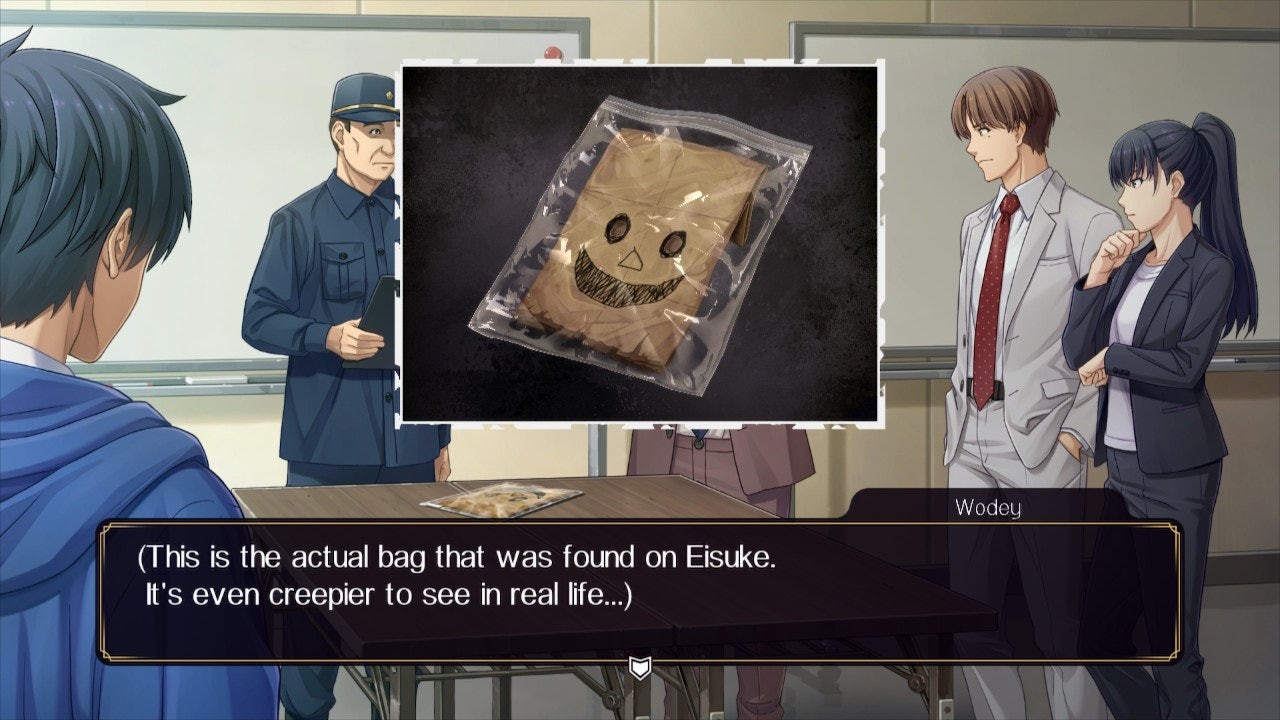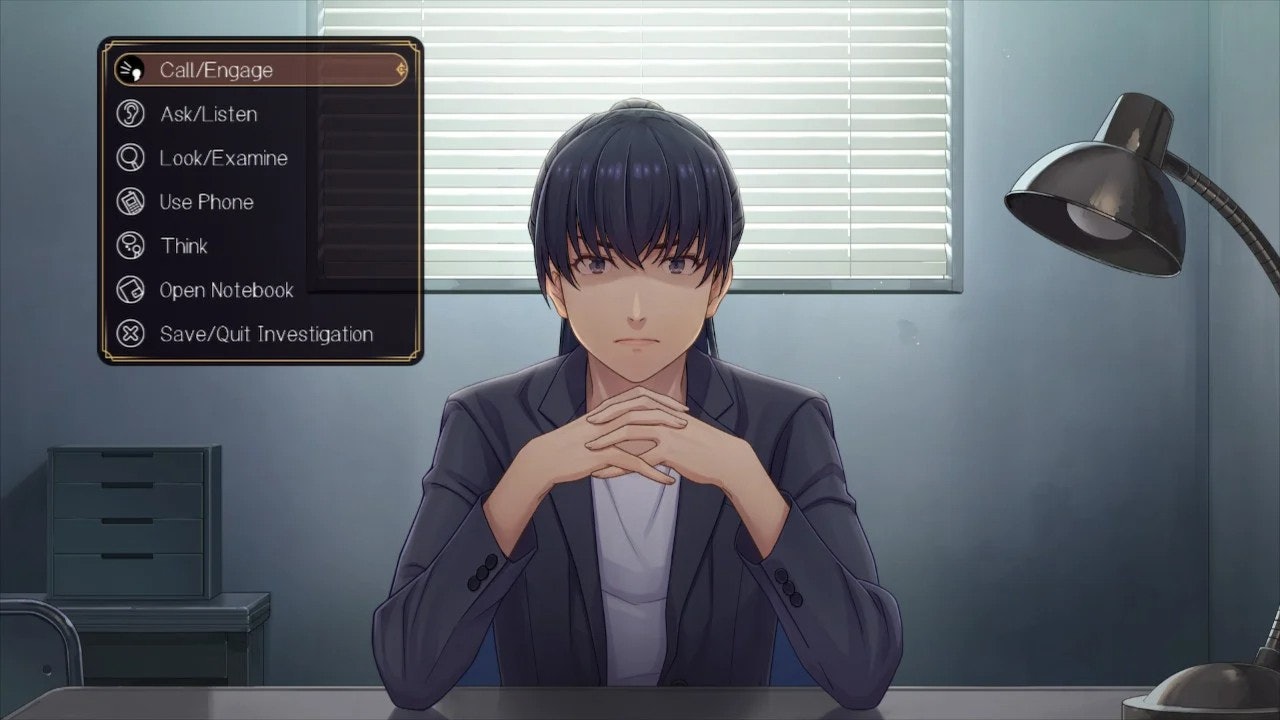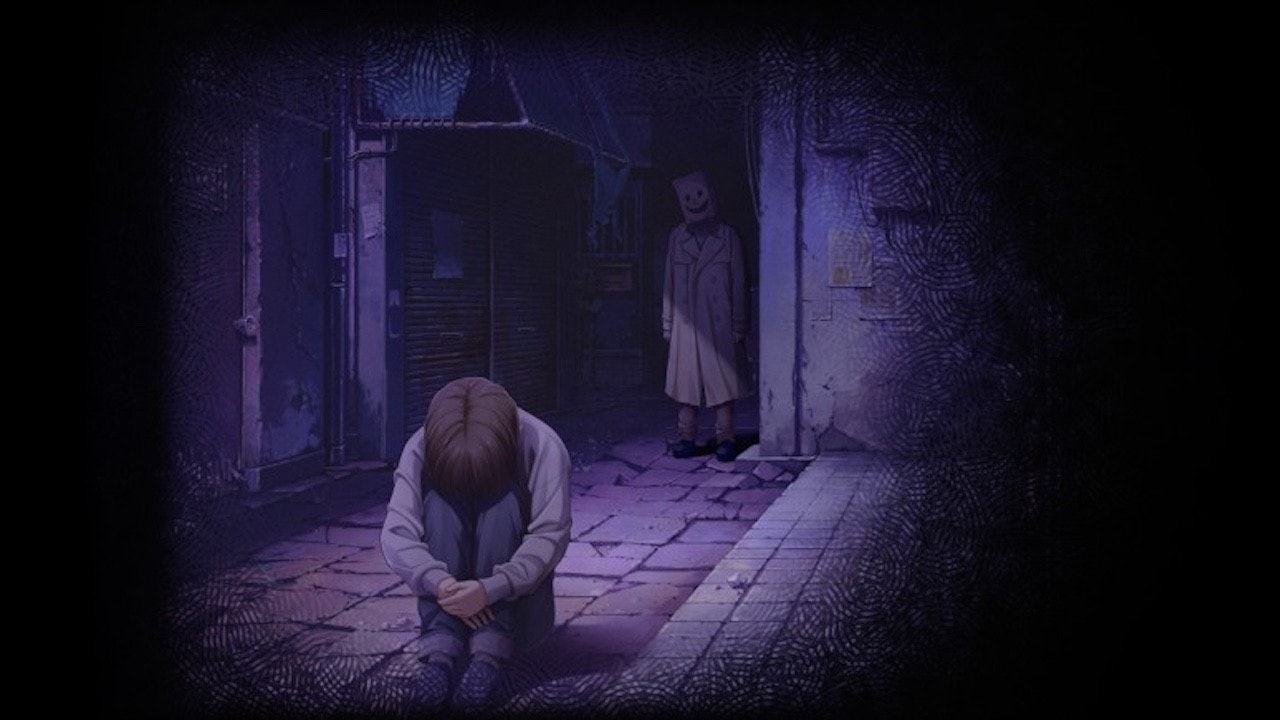
A repeat murderer has struck a quiet town, using the same eerie calling card they used eighteen years ago — a bag on the victim’s head with a smiley face. It’s up to you to piece together the evidence and find out who’s behind it all. If you think that doesn’t sound like your typical family-friendly Nintendo game, you’d be right.
Emio - The Smiling Man is the first new entry in the Famicom Detective Club series in over thirty years, not counting the remakes released in 2021. It’s a deliciously dreadful and tense horror story that painstakingly takes its time to set things up, a slow-burn tale with a mind-boggling payoff. It’s one of the best games of the year, but it’s an experience that needs time to simmer and bubble, and that’s simultaneously its biggest strength and weakness.
Emio is set in an unnamed Japanese town, right in the wake of a gruesome murder of a junior high boy. As the police investigate you play as a young member of the Utsugi Detective Agency, the same protagonist as the last two Famicom Detective games (whose name you decide). There’s initially very little evidence, and very little details about what happened, which is entirely intentional. Emio is the textbook definition of a slow-burn story, and that could be the toughest selling point, especially when coupled with its gameplay style.

You can describe Emio in two different ways — both a visual novel and a command-based adventure game. This entry uses the exact same gameplay style as the first two Famicom Detective Games, giving it a feel of being faithful to the series’ vision. In some cases, it can feel archaic, but in other ways it feels fittingly cryptic and mysterious.
As a visual novel, you spend a lot of time reading through dialogue and story, but Emio also has a “command menu” that determines what you do in basically every scene. On this menu are things like Call Out, Ask, Think, Use Phone, etc. In essence, every scene and chapter is a puzzle of you intuiting which commands you need to use to progress the story. For example, you might be asking a witness questions and they suddenly get upset and change their body language, so you need to use the Look command to examine them in order to unlock the next question or interaction.
If you’ve never played this kind of command-style visual novel, it’s likely going to take a bit of getting used to. Emio only provides the vaguest of hints about what to do, and there are multiple moments where you’ll be clicking around the screen or picking options to try and find what works. But what’s brilliant about these systems is how they start out simple, teach you the basics, and slowly ramp up across the experience. The further you get the more you’ll need to use your intuition, and the more you’ll need to pay attention to every detail, big and small.

That’s true of the entire game at large — as the story has a few wild twists and turns that you absolutely don’t see coming. But what’s remarkable is how it takes time to get there. Emio has a gripping story, but so much of what you’re doing is actually the nitty-gritty of detective work, not just the highlights.
You’ll spend hours coming over crime scenes, questioning people exhaustively, and reviewing it all at the end of the day. Emio wants you to put yourself in the mindset of a detective, not just see a detective story play out. That’s exactly what makes the game so engrossing, the sense that you’re building a case and being an active participant in the story.
The big caveat here is that going into Emio you’ll need a big portion of patience. Yes, the story is slow — yes the gameplay requires some trial and error, but boy is the payoff worth it. It’s excruciatingly hard to talk about the game’s ending without spoiling anything, but it’s an ingenious masterstroke that brings the entire game together and makes all those hours of meticulously piecing things together worth it.

There are also some surprisingly weighty themes the game throws around and meaningfully tries to comment on. It’s by far one of the most mature things Nintendo has ever made. The story weaves in topics like childhood trauma and how that molds someone’s life, and how children so often aren’t given voices in situations they’re thrust into against their will.
It’s easy to understand that needing to be patient and sit through hours of world-building may not appeal to everyone, and visual novels are already a fairly niche genre. But the way Emio rewards that patience is some of the best I’ve ever seen in a video game. On top of that, there’s an absurd attention to detail throughout the game — every character is lavishly animated, environments are packed to the brim with details, and there’s a kind of whimsical ‘90s aesthetic that permeates the entire experience.
While Emio may not be for everyone, it’s a stark reminder that no other publisher is doing it like Nintendo, with a real breadth of diverse games. The same year we get a cute bubbly Princess Peach game, we get a dark thematically mature horror story. I’m glad we can have both.







